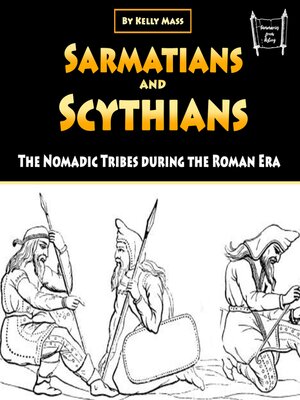Sarmatians and Scythians
audiobook (Unabridged) ∣ The Nomadic Tribes during the Roman Era
By Kelly Mass

Sign up to save your library
With an OverDrive account, you can save your favorite libraries for at-a-glance information about availability. Find out more about OverDrive accounts.
Find this title in Libby, the library reading app by OverDrive.



Search for a digital library with this title
Title found at these libraries:
| Library Name | Distance |
|---|---|
| Loading... |
This audiobook is narrated by a digital voice.
Throughout the vast steppes of Eurasia, two fierce and mobile peoples once thundered across the landscape, shaping the history and mythologies of the ancient world: the Scythians and the Sarmatians. These nomadic tribes lived on horseback, fought in swift raids, and maintained a culture and lifestyle uniquely adapted to the wide-open grasslands. As they moved across the steppe, they clashed with empires, including the powerful Romans. Their legacy can be seen not only in the ruins and writings of antiquity but also in the folklore and warrior traditions of later European peoples. This book provides a concise exploration into who these people were, how they lived, and how they interacted with the Roman world.
The Scythians were among the earliest identifiable groups of Iranian-speaking nomads to dominate the Eurasian steppes. Emerging around the 9th century BCE, they occupied a vast territory that included parts of modern-day Ukraine, southern Russia, and Central Asia. Herodotus, the ancient Greek historian, described them in detail—depicting a warrior culture that revered archery, honored the dead with great burial mounds, and held elaborate rituals involving horses and fire.
The Scythians were not an empire in the traditional sense but rather a loosely organized collection of tribes united by similar customs, languages, and economic patterns. They were masters of horseback warfare and developed advanced forms of mounted archery and cavalry tactics long before such strategies became common elsewhere. Their success in warfare allowed them to control vital trade routes between East and West, collecting tribute from weaker neighboring peoples and sometimes engaging in brutal raids.







